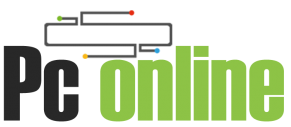A company or organization that handles a massive volume of data, especially sensitive files, should have a robust data management system or data archiving solution such as the one offered by ArchiverFS. However, if you are new to this kind of data handling need, you will find the process daunting, confusing, and overwhelming. Hence, we give you this article to help you narrow down your choice, and eventually come up with the best choice.
There are factors that need to be taken into account when choosing an archiving solution and these are the following:
- Think about the long-term goal
When choosing an archiving solution, it is important to think about the company’s long-term goal. Choose an archiving solution that is flexible to use for the years to come, especially when changes in the business occur in the future. Changes in a business or organization is inevitable, be it for the better or not. Therefore, you have to select an archiving solution that you can easily change or modify as the need of your business change. Aside from the long-term goal of your business, you also need to look at the archiving solution vendor’s long term perspective. Does it have the ability to address complex information technology problems and business issues?
- Manageability
Another important factor to keep in mind is manageability. A good archiving solution should be able to address the manageability demands of the organization, such as safe and secure administration (role-based), granular provisioning, and reporting. An archiving solution that lets you manage data easily is the best as it will be less hassle to the staff. A significant part of manageability is incorporating archiving solutions with the company’s policies. It is important to ensure that the user will be able to access the right kind of information during the data retrieval process. Most of all, there should be proper distribution of data or information across functional teams.
- Check for content intelligence
A good archiving solution will focus more on content intelligence. It is a no-brainer that not all information is created equal. Therefore, it is a must for an organization to manage all pieces of information according to their individual value. Some information or data need to be maintained yearly, while others can be disposed of quickly. A good archiving solution should let you manage information effectively by classifying data based on their relevance and the ability to enforce policies. When evaluating archiving solutions, you should look for the flexibility to classify data, filtering options, and retention policies. It will be an added advantage if it offers support for both automated and user-initiated classification. The ability to integrate archiving solutions to a business or organization’s content management is also a must. Look for intelligence filtering ability as such has the ability to get rid of irrelevant content prior to archiving automatically. More so, it will keep archived data to their corresponding classification.
- Total cost ownership optimization
The cost of having an archiving solution varies from one provider to another. Such pricing information can play a massive part in the business’s decision to use the archiving tool. However, businesses or organizations that handle huge information, especially sensitive data, are highly encouraged to have a robust archiving solution. Some organizations may not see the need for now until issues arise. Email archives provide a quick return on investment. Still, a high-quality archiving solution provides both administrative and technical functionality to lower the cost of running a business and overall archive ownership. Therefore, when selecting an archiving solution tool, you need to look for the one that helps you reduce administrative time spent on data management software.
- Go for the top breed open solutions
Choose an archiving solution that will grow with you as your business or organization needs arise. There should be an open application programming interface and support for long-term data storage. It should offer the following:
- It is compatible with a wide array of storage options.
- It supports tiered storage helping you store a huge chunk of data without breaking a bank.
- It archives different kinds of data, not just email, such as unstructured content like instant messages, libraries, and Microsoft SharePoint.
- It allows the incorporation of third-party products.
- It lets you expand your archiving solution easily as the need of the organization or business arises.
- It enables you to integrate other infrastructure elements like records management systems and databases.
- It intelligently classifies data and imposes a robust retention technology to capture all pertinent pieces of information.
Choosing the best data archiving solution is easier said than done. A quick search online will give you a multitude of options, which makes choosing all the more tedious. The first data management software you come across should not be your first choice as there are plenty of things that need to be taken into account. The factors mentioned above are the top things to consider when making your choice. For someone new in the archiving solution, the selection process can be overwhelming, but it is worth the work. After all, you are searching for something that can make a massive difference for the business and organization in general. The bottom line, you should not settle for less than what your organization deserves. High-quality archiving software may cost a lot, but it is money well-spent, especially if you look at it from a long-term perspective.


